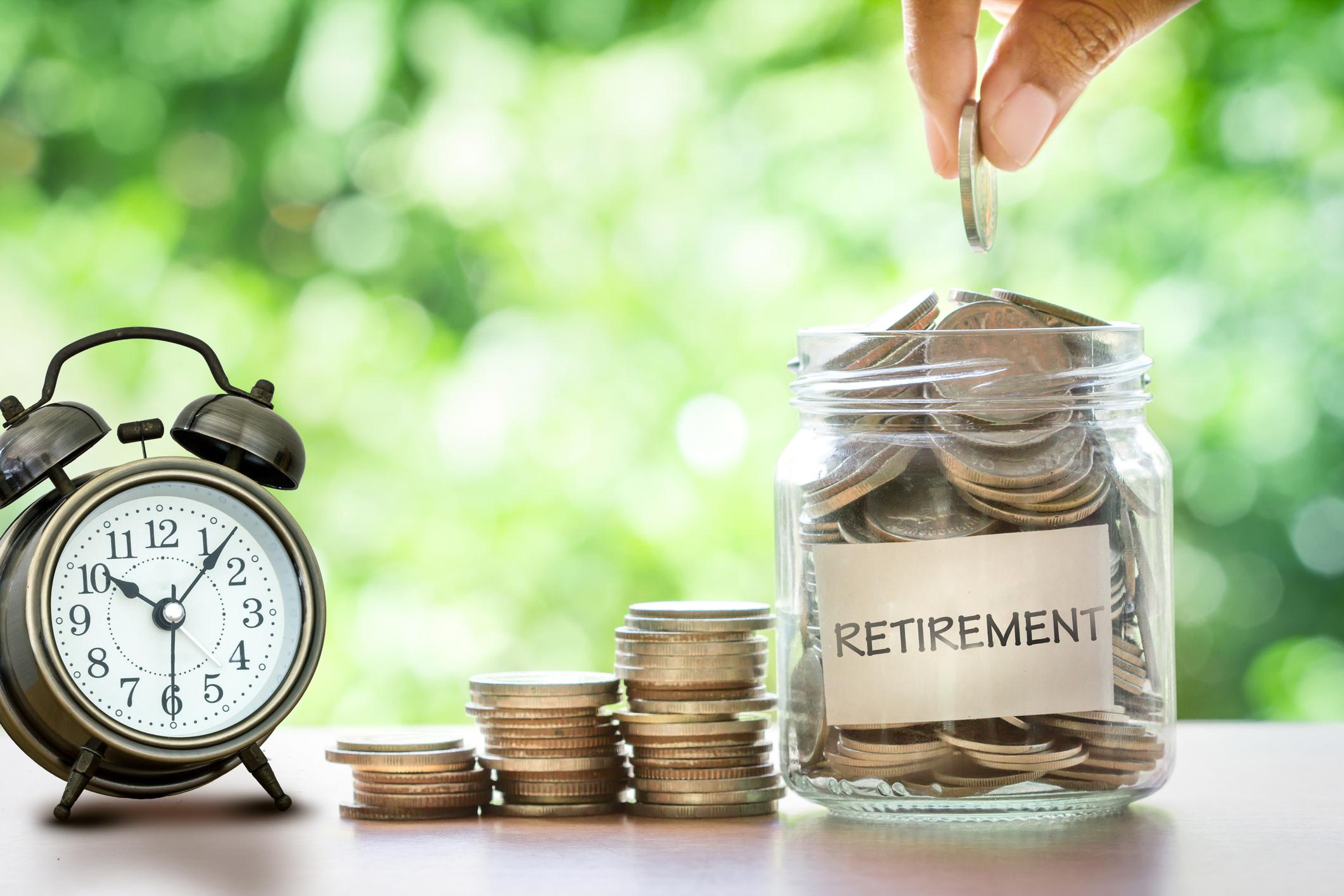Best Conservative Retirement Investments
The best conservative retirement investments include a mix of mutual funds that invest in stocks, bonds and money markets.


Profit and prosper with the best of Kiplinger's advice on investing, taxes, retirement, personal finance and much more. Delivered daily. Enter your email in the box and click Sign Me Up.
You are now subscribed
Your newsletter sign-up was successful
Want to add more newsletters?

Delivered daily
Kiplinger Today
Profit and prosper with the best of Kiplinger's advice on investing, taxes, retirement, personal finance and much more delivered daily. Smart money moves start here.

Sent five days a week
Kiplinger A Step Ahead
Get practical help to make better financial decisions in your everyday life, from spending to savings on top deals.

Delivered daily
Kiplinger Closing Bell
Get today's biggest financial and investing headlines delivered to your inbox every day the U.S. stock market is open.

Sent twice a week
Kiplinger Adviser Intel
Financial pros across the country share best practices and fresh tactics to preserve and grow your wealth.

Delivered weekly
Kiplinger Tax Tips
Trim your federal and state tax bills with practical tax-planning and tax-cutting strategies.

Sent twice a week
Kiplinger Retirement Tips
Your twice-a-week guide to planning and enjoying a financially secure and richly rewarding retirement

Sent bimonthly.
Kiplinger Adviser Angle
Insights for advisers, wealth managers and other financial professionals.

Sent twice a week
Kiplinger Investing Weekly
Your twice-a-week roundup of promising stocks, funds, companies and industries you should consider, ones you should avoid, and why.

Sent weekly for six weeks
Kiplinger Invest for Retirement
Your step-by-step six-part series on how to invest for retirement, from devising a successful strategy to exactly which investments to choose.
Retirees often want to know how to conservatively invest their retirement assets. They need a mix of income, safety, liquidity and availability of funds. In addition, the priority is for simplicity and predictability. This article will explore the broadest and best conservative retirement investments.
Keep in mind this article is not meant as personal financial advice. Retirees should work with financial professionals and do their own research to make suitable investment choices based on their own needs and goals. Kiplinger simply wants to provide an overview of what are generally considered the best conservative investments for retirees.
Moreover, as retirees get older, they should take stock of what is and what isn't working and potentially narrow their investment choices over time such that simplicity and liquidity become the highest priority.
From just $107.88 $24.99 for Kiplinger Personal Finance
Become a smarter, better informed investor. Subscribe from just $107.88 $24.99, plus get up to 4 Special Issues

Sign up for Kiplinger’s Free Newsletters
Profit and prosper with the best of expert advice on investing, taxes, retirement, personal finance and more - straight to your e-mail.
Profit and prosper with the best of expert advice - straight to your e-mail.
Overall, some of the safest investments for retirees tend to be a mix of mutual funds, preferably index funds, that invest in the stock and bond markets, as well as liquid money market funds (i.e., those that pay interest).
How to choose the best conservative retirement investments
Warren Buffett is famously quoted as saying that retirees should invest the majority of their assets in low-cost ETFs (exchange-traded funds) that mimic the S&P 500. In other words, they use an indexing strategy that mirrors the performance of the 503 stocks that are included in the index.
Buffett is quoted as saying that up to 90% of investors' assets should be in these cheap ETFs. In his 2013 letter to Berkshire Hathaway shareholders, he wrote that the "long-term results from this policy will be superior to those attained by most investors – whether pension funds, institutions or individuals – who employ high-fee managers."
Others believe that a more appropriate mix is 70% in stock market index funds. The remainder should be in a mix of bond funds, certificates of deposit (CDs) and money market funds. That could mean 20% in bond funds and 10% in CDs and money market funds.
Here are some of the benefits to these types of conservative retirement investments:
Stock market index ETFs have low fees and also pay out all the dividends they collect from the underlying equities. There are no capital gains taxes incurred until shares are sold.
Right now, the S&P 500 has a dividend yield of 1.4%. Moreover, the S&P 500's 12-month total return (price change plus dividends) is 23%.
Additionally, investments in stock index funds have played out well over time. For example, the S&P 500 has averaged an annual total return of 15% over the past 15 years. Not too shabby.
Bond funds typically offer investors a lower return than index funds, but more peace of mind. Granted, the bond market has seen its fair share of volatility in recent years, but as Kiplinger contributor Jeff Reeves writes in his feature on the best bond funds to buy, "If you're at or near retirement and your biggest concerns are capital preservation and income, you simply cannot overlook bonds."
Investors can also gain exposure to the fixed-income market through bond ETFs, as well, which tend to have lower expense ratios than their mutual fund counterparts.
Keep in mind that bond funds fluctuate in price, just as stock funds do. Many investors don't realize, for example, that if interest rates rise over time, bond prices can decline. However, because of the inverse relationship with bond prices and yields, falling prices result in higher yields.
On the other hand, if the general level of rates begins to decline, principal amounts will rise but investors could be left with lower monthly interest payments.
Certificates of deposit (CDs) are another way to safely grow your money in retirement, although one drawback includes having to tie up your money for the length of the certificate. Still, many CDs currently have yields that range well over 5%. For example, Bankrate reports that some of the best CD rates right now range between 5% and 6%.
Similarly, high interest is available from a mix of money market mutual funds. According to Crane Data, the 100 largest taxable money market funds tracked by the investment services firm currently boast an average yield of 5.15%.
The bottom line
The bottom line is that folks looking for the best conservative retirement investments will generally make steady returns in index funds that cover the stock and bond markets. The theory here is simple: As funds are drawn down for retirees' liquidity needs, the growth from being invested in the stock market and to some extent bond funds, can help counteract these drawdowns.
In addition, by keeping a portion of investments in semi-liquid and stable CDs and liquid money market funds, both which pay interest, retirees can meet their monthly and daily funding needs. Over time, the portion in liquid funds should grow for most retirees.
Related content
Profit and prosper with the best of Kiplinger's advice on investing, taxes, retirement, personal finance and much more. Delivered daily. Enter your email in the box and click Sign Me Up.

Mark R. Hake, CFA, is a Chartered Financial Analyst and entrepreneur. He has been writing on stocks for over six years and has also owned his own investment management and research firms focused on U.S. and international value stocks, for over 10 years. In addition, he worked on the buy side for investment firms, hedge funds, and investment divisions of insurance companies for the past 36 years. Lately, he is also working as Chief Strategy Officer for a tech start-up company, Foldstar Inc, based in Princeton, New Jersey.
-
 Dow Adds 1,206 Points to Top 50,000: Stock Market Today
Dow Adds 1,206 Points to Top 50,000: Stock Market TodayThe S&P 500 and Nasdaq also had strong finishes to a volatile week, with beaten-down tech stocks outperforming.
-
 Ask the Tax Editor: Federal Income Tax Deductions
Ask the Tax Editor: Federal Income Tax DeductionsAsk the Editor In this week's Ask the Editor Q&A, Joy Taylor answers questions on federal income tax deductions
-
 States With No-Fault Car Insurance Laws (and How No-Fault Car Insurance Works)
States With No-Fault Car Insurance Laws (and How No-Fault Car Insurance Works)A breakdown of the confusing rules around no-fault car insurance in every state where it exists.